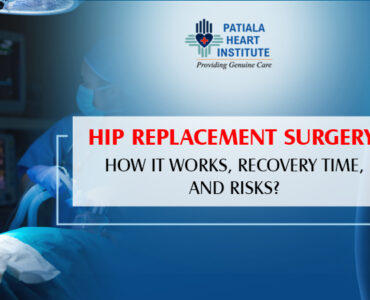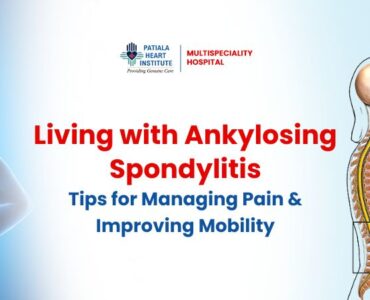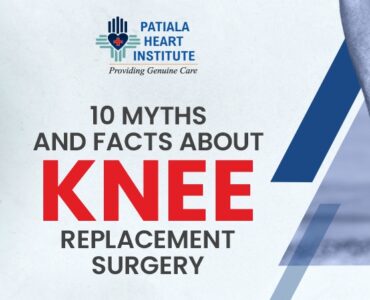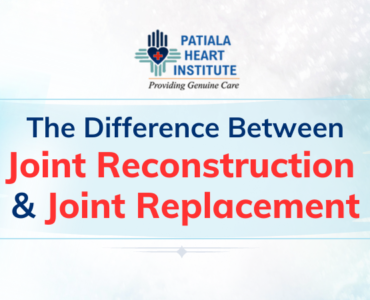Today, total joint replacements in India are estimated to be between 40,000 to 50,000. These numbers are growing faster and doubling every year. In India, every 2 in ten people 65 years of age are believed to have some joint issue that affects their mobility. (Source: TOI)
A hip in poor health can make you uncomfortable about doing things you love or even make it impossible. If you feel pain or stiffness in your hip, which restricts you from performing everyday activities, and the conservative treatments and medications are not relieving your condition, hip replacement surgery can greatly impact your quality of life.
Hip replacement surgery can help relieve painful symptoms, resulting in increased mobility and the ability to perform day-to-day activities.
This blog will provide information on hip replacement surgery and signs that tell if you need one. So, read it till the end.
What is Hip Replacement Surgery?
Hip replacement is a surgical procedure that involves replacing damaged hip tissues with artificial implants, also known as prosthetics. This surgery involves replacing the tissues, namely, balls and sockets.
These are the two bones that form the hip joint. The ball, also known as the femoral head, forms the top of the femur bone and the lower part of the hip joint. The socket, also known as the acetabulum, forms the top part of the hip joint and a part of the pelvic bone.
There are three Options for Hip Replacement Surgery
- Anterior Hip Replacement
- Lateral Hip Replacement
- Posterior Hip Replacement
During this surgery, you will either be under general anesthesia to block pain or an epidural to numb all the sensations below the waist. After anesthesia, the surgeon will examine your hip joint from various angles, including the side, front, or back.
Once they are done assessing, they remove the femoral head and create an opening in the center of the femur. After this, they insert the stem into the opening before attaching the replacement ball to the stem.
Once the surgeons are done implanting the ball and stem prosthesis, they will remove the damaged cartilage from the socket part of the joint and attach the titanium cup. This will create a new hip joint that will function better than the old one.
Now let’s examine the signs that indicate a hip replacement is necessary.
8 Signs to Know if You Need a Hip Replacement
You might be struggling with an ailing hip but ignoring it for a long time. So, read the following to know whether you need hip replacement surgery.
You Have Chronic Pain
You may experience chronic and serious pain, usually between your hip and knee, if you have a damaged hip joint. There are a few serious problems listed below, if you experience any of them, you must seek guidance from an orthopaedic immediately.
- To relieve your hip pain, you rely on a walking aid.
- You get no benefit from conservative treatments.
- You get no relief from your pain, even by resting.
- You find it challenging with your pain to walk or bend.
- You are totally dependent on painkillers to handle pain.
- Even after the painkillers, your pain wakes you up at night.
- With the help of a limp, you compensate for your pain.
You should seek advice from your doctor if you are experiencing these problems. If they ask you to go for hip replacement surgery, you must proceed with it because it is for the betterment of you and your health.
Your Hip Disability Makes Routine Tasks Challenging
Before deciding whether you will have hip replacement surgery, you must observe the impact of your strained hip on your day-to-day tasks. If you can handle the pain but cannot do the following tasks, you are in serious trouble:
- Find normal distances challenging to walk.
- Face difficulty in putting on shoes or socks.
- Unable to move or handle the weight on the affected leg
Hip Stiffness Limits Your Normal Range of Motion in the Joint
Another sign that indicates a severely damaged hip, or you may need hip replacement surgery, is hip stiffness. There are two types of hip stiffness:
Acute Hip Stiffness
It is not an alarming problem because it occurs suddenly and goes away in a short time.
Chronic hip stiffness
It warns you of immediate medical attention because its pain persists indefinitely.
If you experience such stiffness, which makes walking, bending your hip joint, or lifting your leg challenging, consult an orthopaedic right away.
Conservative Treatments do not Adequately Relieve Hip Pain
There are many people suffering from conditions that affect the hip joint, such as arthritis, but they are not advised hip replacement surgery right away. Initially, the doctor will try conservative treatment options that might help people relieve their pain if the symptoms are not severe. These treatments include the following:
Physical Therapy
It helps strengthen the muscles around the hip joint and partially restores its range of motion.
Steroid Injections
They help in reducing swelling and blocking pain signals.
Anti-inflammatory Medications
These focus on reducing the hip joint’s inflammation, resulting in pain relief.
Acupuncture
It helps increase the blood flow to the injured area, and as a result, it aids healing, reduces inflammation, and relaxes muscles.
However, these treatments do not offer a complete solution but improve its functioning and make the hip pain more tolerable, but only for a shorter duration. After some time, there might come a point when these treatments will become less or not at all effective and won’t provide the needed relief to you. At that time, your doctor may suggest hip replacement surgery.
Tests Reveal Advanced Arthritis or Significant Joint Damage
Your hip is a ball-and-socket joint. Cartilage and synovial fluid reduce the friction where the pelvic bone socket and the femoral head join. The cartilage wears away with hip osteoarthritis (OA), causing pain and joint damage.
There’s no cushion between the bones rubbing together without cartilage, and they begin to wear down and damage the joint. Advanced cases of joint damage may make surgery necessary.
Your quality of Life is Suffering
Chronic and signifcant hip pain can make it really challenging for you to enjoy things you love, either spending quality time with your family or participating in activities that you used to love with friends.
Therefore, if your hip pain impacts your quality of life, hip replacement surgery is the right choice. Hip replacement can make you feel better and your joints more active, so you can get back to the things that matter the most to you.
You Might Have Side Effects From Hip Pain Medications
Your doctor might prescribe you pain medications such as NSAIDs, which are safe if used for a shorter duration. Still, it can develop several side effects with prolonged use. Such side effects include the following:
- Ulcers
- Weakened Immune System
- Irritation in Stomach
- Addiction to the medicine
- Increased risk of stroke, blood clots, or a heart attack
- Tolerance means your body needs to increase the quantity of medicine to relieve pain.
If these pain medicines have started causing you the side effects mentioned above, you should consider hip replacement surgery. These side effects clearly indicate that the medicines are not providing pain relief and damaging your body even more.
Less Complicated Surgical Procedures Are Unlikely to Help
A few lesser complicated surgical procedures are available as an alternative to hip replacement surgery. However, hip replacement surgery has a high success rate among most patients.
If your doctor doubts that you might not benefit from an alternative surgical procedure, consider undergoing hip replacement surgery. Even people with severe hip fractures consider this procedure.
Conclusion
These were some of the signs that may indicate the need for Hip Replacement Surgery which you should not ignore. To determine if Hip Replacement is the right choice, you should consult an experienced orthopedic surgeon who can explain the risks and benefits to you.
Our expert orthopedics at Patiala Heart Institute will be happy to answer any questions you may have regarding these signs and procedures. Please feel free to contact us or make an appointment to get expert advice.
What is the average age for a hip replacement?
Generally, most hip replacements are performed in patients aged between 60 to 80 years of age. However, the patients can be older or younger for the surgery. This is because, in rare case scenarios, the patients are either teens or in their early twenties.
Will life be the same after hip replacement?
Once you have undergone the hip replacement operation, it will take lesser time to make things return to normal, and even the pain goes away for most people. And after a couple of months, the recovery is considered complete. During this time, you must look for any signs of complications and be careful how you move your hip.







